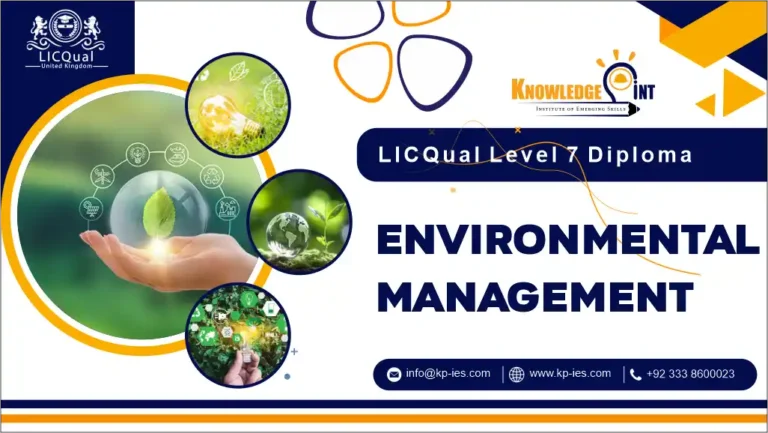The ICTQual Level 3 Diploma in Automotive Engineering is the ideal program for individuals looking to take their first step into the dynamic automotive industry. This 6-month course, valued at 60 credits, is designed to equip learners with the foundational knowledge and practical skills required for entry-level roles or further studies in automotive engineering.
The automotive industry is evolving rapidly, driven by advancements in technology and sustainability. This course provides a gateway to understanding the fundamentals of automotive systems, preparing learners for careers in one of the world’s most exciting sectors.
The ICTQual Level 3 Diploma in Automotive Engineering offers an accelerated, industry-focused pathway into the automotive world. With its balanced mix of theoretical knowledge and practical training, this program is your launchpad for success in a dynamic and rewarding field.
Course Overview
The ICTQual Level 3 Diploma in Automotive Engineering 60 Credits – 6 Months consists of 6 mandatory units which are as follows.
- Vehicle Systems and Technology
- Automotive Electrical Systems
- Engine Technology and Diagnostics
- Vehicle Maintenance and Repair
- Automotive Diagnostics and Fault Finding
- Health and Safety in Automotive Engineering
The future progression of the ICTQual Level 3 Diploma in Automotive Engineering 60 Credits – 6 can lead learners towards several pathways, depending on their career goals and aspirations in the field of Automotive Engineering. Here are some potential avenues of progression:
1. Vehicle Systems and Technology
- Understand the key vehicle systems: Identify and describe the various systems in vehicles, such as powertrains, braking systems, suspension, and steering.
- Analyze system integration: Evaluate how different systems work together to ensure vehicle performance, comfort, and safety.
- Recognize emerging automotive technologies: Demonstrate awareness of new technologies such as hybrid and electric vehicle systems, infotainment, and autonomous driving features.
2. Automotive Electrical Systems
- Basic electrical principles: Understand the fundamentals of electricity, including voltage, current, and resistance, and how these concepts apply to vehicle electrical systems.
- Diagnose electrical issues: Learn to identify faults in electrical circuits, wiring, and components using diagnostic tools such as multimeters and circuit testers.
- Vehicle wiring and component operation: Understand how key components like the battery, alternator, lights, sensors, and switches function and are interconnected.
- Vehicle electronics and sensors: Gain knowledge of the role of sensors and controllers in modern vehicles, especially in advanced driver-assistance systems (ADAS).
3. Engine Technology and Diagnostics
- Engine function and components: Understand the working principles of internal combustion engines, including engine blocks, pistons, crankshafts, and valves.
- Engine diagnostics: Learn how to perform diagnostic tests on engines to identify issues related to performance, emissions, and mechanical failure.
- Troubleshooting techniques: Develop the skills to use diagnostic equipment such as OBD-II scanners to identify faults in the engine and related systems.
- Performance tuning: Analyze and assess engine performance data to make adjustments for improving efficiency, power output, and emissions.
4. Vehicle Maintenance and Repair
- Routine maintenance procedures: Learn to perform regular maintenance tasks such as oil changes, tire rotations, brake inspections, and fluid checks.
- Repair processes: Develop skills in diagnosing and repairing common vehicle faults, such as engine malfunctions, exhaust system issues, and transmission problems.
- Use of tools and equipment: Gain hands-on experience with automotive tools, including wrenches, lifts, diagnostic scanners, and specialized repair equipment.
- Vehicle service schedules: Understand the importance of following manufacturer’s guidelines for maintenance and repairs to ensure vehicle longevity and performance.
5. Automotive Diagnostics and Fault Finding
- Diagnostic approaches: Learn to diagnose vehicle faults using systematic approaches, from visual inspections to advanced computer diagnostics.
- Fault isolation and resolution: Develop critical thinking and problem-solving skills to isolate issues within various vehicle systems, such as the electrical, fuel, or mechanical systems.
- Use of diagnostic equipment: Gain proficiency in using tools like scan tools, oscilloscopes, and pressure gauges to perform diagnostics and accurately pinpoint faults.
- Recordkeeping and reporting: Understand the importance of documentation and how to create detailed reports on diagnostics and repairs.
6. Health and Safety in Automotive Engineering
- Safety protocols: Understand and apply industry safety standards and regulations for working in automotive environments, including handling hazardous materials and ensuring proper vehicle lifting techniques.
- Personal protective equipment (PPE): Learn the appropriate use of PPE such as gloves, goggles, hearing protection, and protective clothing.
- Risk assessments and hazard management: Conduct risk assessments to identify and mitigate potential dangers in the workshop, such as electrical hazards, fire risks, and equipment malfunctions.
- Workplace safety practices: Gain knowledge of emergency procedures, including how to respond to accidents and fires, and maintain a safe and organized work environment.
Course Benefits of the ICTQual Level 3 Diploma in Automotive Engineering 60 Credits – 6 :
1. Comprehensive Knowledge Base
- Gain a deep understanding of core and advanced automotive systems, including engine design, electrical systems, hybrid technologies, and autonomous systems.
- Stay updated with cutting-edge advancements in the automotive field, such as emissions control and vehicle safety innovations.
2. Practical Skill Development
- Hands-on experience with diagnostic tools, fault-finding techniques, and testing procedures.
- Practical training in project management and the application of industry standards in real-world scenarios.
3. Industry-Relevant Expertise
- Learn about emerging trends, such as hybrid and electric vehicles, to remain competitive in the green automotive revolution.
- Gain knowledge of vehicle safety, environmental compliance, and crash testing to contribute to safer and eco-friendly automotive designs.
4. Career Advancement Opportunities
- The course prepares learners for roles in various automotive sectors, including:
- Vehicle Design and Development
- Diagnostics and Fault Analysis
- Manufacturing and Quality Assurance
- Autonomous Systems Engineering
- Enhance your employability in global markets with insights into industry regulations and international standards.
5. Pathway to Specialization
- The modules create a pathway to advanced qualifications or specialization in areas such as:
- Electric Vehicle Design
- Autonomous Vehicle Systems
- Automotive Research and Development
- Sustainable Automotive Practices
6. Holistic Professional Growth
- Develop critical thinking, analytical, and problem-solving skills to tackle industry challenges.
- Build project management expertise to lead automotive initiatives and contribute effectively in team environments.
- Enhance communication and technical writing skills, essential for presenting findings and collaborating across disciplines.
7. Global and Sustainable Perspective
- Equip yourself to address global challenges in automotive engineering, such as reducing emissions and improving energy efficiency.
- Gain insights into sustainable manufacturing practices to contribute to a greener automotive future.
8. Real-World Application
- Engage in capstone projects and industrial placements, offering opportunities to apply theoretical knowledge to real-world scenarios.
- Develop a portfolio of work that demonstrates competence to future employers or higher education institutions.
9. Lifelong Learning and Adaptability
- Stay prepared for future advancements in automotive technology, ensuring continuous relevance in a rapidly evolving industry.
- Build a foundation for lifelong learning and professional development, fostering a successful and adaptable career.
Future Progression of the ICTQual Level 3 Diploma in Automotive Engineering 60 Credits – 6
Completing the ICTQual Level 3 Diploma in Automotive Engineering 60 Credits – 6 opens up diverse opportunities for further education, career advancement, and specialization in the rapidly evolving automotive industry.
1. Higher Education Opportunities
Graduates of this diploma can advance their academic qualifications by pursuing:
- Master’s Degree Programs
- Automotive Engineering
- Mechanical Engineering
- Electric Vehicle Technology
- Automotive Design and Innovation
- Sustainable Transportation Engineering
- Specialized Certifications
- Hybrid and Electric Vehicle Design
- Autonomous Vehicle Systems
- Advanced Diagnostics and Maintenance
2. Industry-Specific Specializations
The diploma provides a pathway to specialize in cutting-edge areas of automotive engineering, including:
- Autonomous Vehicle Development
- Focus on artificial intelligence, sensor integration, and autonomous control systems.
- Sustainable Automotive Technologies
- Specialize in renewable energy integration, eco-friendly vehicle production, and lifecycle analysis.
- Electric and Hybrid Vehicle Engineering
- Expertise in battery systems, electric drivetrains, and EV infrastructure.
- Advanced Vehicle Design
- Proficiency in aerodynamics, lightweight materials, and advanced prototyping techniques.
3. Career Advancement
The diploma equips graduates for progression into mid-to-senior level roles in the automotive industry, such as:
- Senior Automotive Engineer: Lead teams in the design and development of innovative vehicles.
- Research and Development Specialist: Drive innovation in automotive technologies.
- Production Manager: Oversee large-scale manufacturing operations with a focus on quality and efficiency.
- Sustainability Consultant: Help companies meet environmental and regulatory goals.
- Project Manager: Lead cross-functional teams in delivering automotive engineering projects.
4. Entrepreneurship Opportunities
For those with an entrepreneurial spirit, the diploma provides the skills and knowledge to:
- Start your own automotive engineering or consultancy business.
- Innovate in niche areas like custom vehicle design, aftermarket parts, or sustainable transportation solutions.
5. Research and Development (R&D)
Graduates interested in pushing the boundaries of technology can enter R&D roles focused on:
- Developing next-generation vehicles.
- Innovating battery technologies and alternative fuels.
- Enhancing safety systems and autonomous driving features.
6. Global Opportunities
The international alignment of the diploma ensures that graduates are prepared for roles in global markets, including:
- Working with leading automotive manufacturers (e.g., Toyota, Tesla, BMW).
- Participating in international projects focused on green mobility and smart transportation systems.
- Collaborating with research institutions and regulatory bodies to shape the future of the automotive industry.
7. Lifelong Learning and Professional Development
Graduates are encouraged to continue enhancing their expertise by:
- Joining professional organizations such as SAE International or the Institution of Mechanical Engineers (IMechE).
- Participating in workshops, seminars, and conferences to stay updated on the latest industry trends.
- Pursuing certifications in project management (e.g., PMP) or quality control (e.g., Six Sigma) to broaden career prospects.







